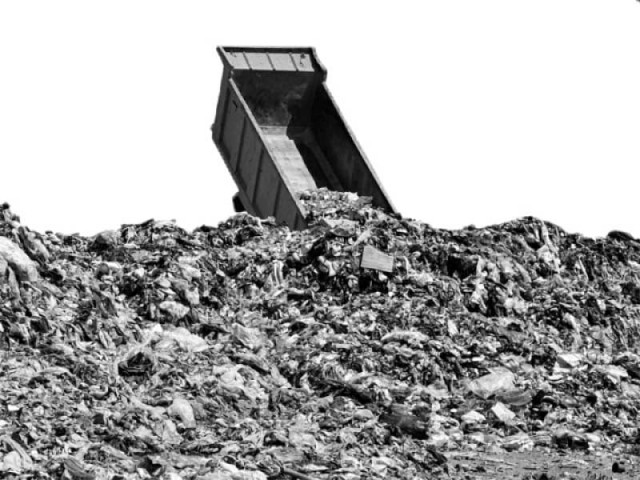DHA, cantts to install water treatment plants
Environment agency submits report in SC hearing pollution of coastal areas case

Environment agency submits report in SC hearing pollution of coastal areas case.
Give a hoot, don’t pollute: Industrial waste in rivers endangers aquatic life, poses health hazards
This was stated in a progress report submitted by Sepa to the Supreme Court, which is hearing a human rights case against the industrial units causing pollution of costal and other water bodies. The report, a copy of which is available with The Express Tribune, was filed at SC's Karachi Registry. So far, Sepa has issued notices to DHA, the cantonments boards of Clifton, Faisal, Karachi, Korangi Creek, Malir and Manora, PNS Mehran, PNS Karsaz, PNS Qasim, PNS Rahbar, Haroon Bahria Cooperative Housing Society (the Naval Colony), and the Pakistan Navy Officers Housing at Zamzama and Karsaz.
Until the construction of combined effluent treatment plants in all industrial areas, Sepa must enforce highly polluting individual industries to develop wastewater treatment plants, said Sepa director-general Naeem Ahmed Mughal in the report.
Recently, a Sepa team monitored major industrial units in Site to see if they were following Section 11 of the SEPA Act, 2014, which prohibits these units from discharging certain effluents and ensures their compliance with standards, he pointed out.
The units that came under the monitoring radar included 66 textile industries, 140 leader, tanning and finishing industries, nine pharmaceutical companies, five vegetable, oil and ghee industries. Others included three electroplating and synthetic fibre, seven food industries, 10 chemical industries, 19 miscellaneous industries, one fertilizer manufacturing plant, three auto mobile manufacturing plants, three beverage industries, three petroleum refining industries.
All these industries had been directed to ensure compliance of the environmental quality standards and install wastewater treatment plants, said Mughal in the report. The provincial agency's head informed that legal action had been taken against the illegal burning of old batteries and all 200 battery operating units were completely removed.
Illegal dumping and burning of the solid waste
The director-general said legal action was also taken against the Karachi Metropolitan Corporation, the Korangi and Malir district municipal corporations. Besides, action was taken against the DHA administrator, the chief executive officers of the Clifton, Faisal, Malir and Manora cantonments.
Environment friendly: SEPA urges waste management in hospitals
Hospital waste disposal
A strategy was being devised to implement the hospital waste management rules by the hospitals, said Mughal, adding that legal action was initiated against those hospitals found involved in violating the existing rules. In this connection, 130 notices were issued to the different hospitals in Karachi, directing them to submit their hospital waste management plan, as per provision of the Hospital Waste Management Rules, 2005.
Plastic products
On prohibition of non-biodegradable plastic products, Mughal said the plastic waste caused serious environmental pollution and health problems. "Marine life is severely affected as fish and turtles take plastic inside thinking it as their food," he explained, adding that these animals choke to death. Studies have demonstrated plastics' tendency to absorb persistent, bio-accumulative and toxic substances, which are present in trace quantities in almost all water bodies. The constituents of plastics as well as the chemicals and metals they absorb can travel into the bodies of the marine organisms upon consumption, where they may concentrate and climb and food chain, ultimately into the humans, he said. "By reviewing all this, we can easily evaluate that it is important and urgent for pro-active measures to be taken to reduce plastic pollution," Mughal added.
Monitoring sugar mills
The SEPA DG said there are 32 sugar mills located in various districts of the province causing pollution due to disposal of untreated effluent as well as issue air pollution prevails in the vicinity due to the release of unchecked pollutants. Currently, monitoring of sugar mills has been completed and legal action is initiated against mills where wastewater treatment plants have yet to be installed.
Published in The Express Tribune, July 17th, 2016.



















COMMENTS
Comments are moderated and generally will be posted if they are on-topic and not abusive.
For more information, please see our Comments FAQ